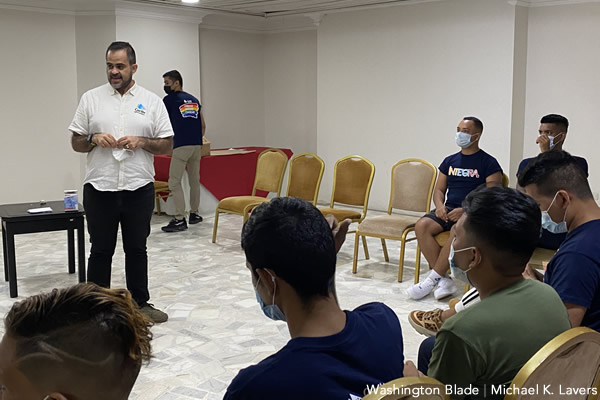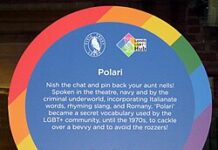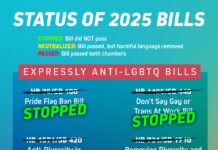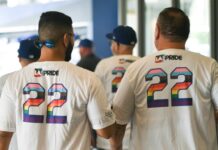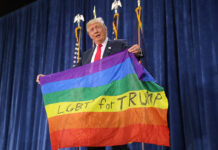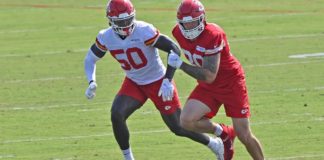BOGOTÁ, Colombia — The director of the U.S. Agency for International Development’s Colombia mission says he and his colleagues remain committed to the implementation of the country’s LGBTQ-inclusive peace agreement.
“The entire portfolio that we have and all of our work here in Colombia is really to support a durable and an inclusive piece,” Larry Sacks told the Washington Blade on Sept. 21 during an interview in Bogotá, the Colombian capital. “The core principles of what we do are based on equality, inclusion, rights and justice.”
The agreement then-President Juan Manuel Santos and the Revolutionary Armed Forces of Colombia Commander Rodrigo “Timochenko” Londoño signed in Cartagena on Sept. 26, 2016, specifically acknowledged LGBTQ Colombians as victims of the decades-long conflict that killed more than 200,000 people. The accord also called for their participation in the country’s political process.
Wilson Castañeda, director of Caribe Afirmativo, an LGBTQ group in northern Colombia with which USAID works, is one of three activists who participated in the peace talks that took place in Havana.
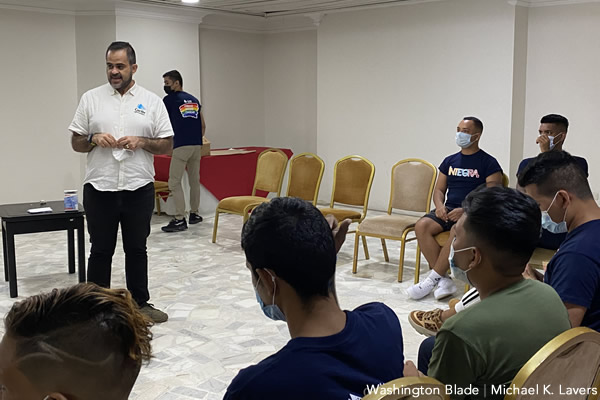
Colombian voters on Oct. 2, 2016, narrowly rejected the agreement in a referendum that took place against the backdrop of anti-LGBTQ rhetoric from religious and conservative groups. Santos and Londoño less than two months later signed a second peace agreement — which also contains LGBTQ-specific references — in Bogotá.
“That was a very progressive move,” said Sacks in describing the inclusion of LGBTQ Colombians in the agreement.
President Iván Duque, who campaigned against the agreement ahead of his 2018 election, spoke to the U.N. General Assembly hours before the Blade interviewed Sacks. Duque described it as “fragile.”
“Peace accords worldwide tend to be made or broken within the first five years of implementation, and Colombia is right at that point,” Sacks told the Blade when asked about Duque’s comments. “There are certain people deep in the territories and others and high governments who are really helping and making sure that it’s successful, and that there’s continuity, and that the gains that have been made are irreversible. And there’s others who may question, but at the end of the day, I think that from our analysis, it’s on pace with what we’ve seen of the implementation of other peace accords worldwide.”
“At least from USAID’s perspective, we’re doing everything that we can to help support the implementation on multiple chapters of the peace accord,” he added.
USAID specifically supports the implementation of rural development programs through the agreement, efforts to reintegrate former child soldiers into Colombian society and expand the government’s presence into “violence-affected areas.” USAID also works with the Truth Commission, the Unit for the Search of Disappeared Persons, the Special Jurisdiction for Peace, the government’s Victims’ Unit and NGOs that support the conflict’s victims.
USAID’s fiscal year 2021 budget for Colombia is $212.9 million. Upwards of $50 million of this money is earmarked for human rights work that specifically focuses on indigenous Colombians and Colombians of African descent, security, access to the country’s justice system and victims of the conflict.
More than 200 LGBTQ Colombians reported murdered in 2020
Sacks said USAID’s LGBTQ-specific work in Colombia focuses on four specific areas.
“The first is really to kind of shine a light on, raise the visibility, raise the profile on issues of discrimination and violence and stigma and all the issues that this population is facing,” he said.
Colombia Diversa, a Colombian LGBTQ rights group, on Sept. 15 issued a report that notes 226 LGBTQ people were reported murdered in the country in 2020. This figure is more than twice the number of LGBTQ Colombians — 107 — who Colombia Diversa said were known to have been killed in 2019.
Sacks acknowledged anti-LGBTQ violence is increasing in Colombia.
He said the mission works with Ombudsman’s Office of Colombia, an independent agency within the Colombian government that oversees human rights protections in the country, to provide additional support to LGBTQ rights groups. Sacks noted USAID also works with the Interior Ministry to “support the development of their LGBTQI-plus policies” and the country’s attorney general “to hold those accountable.”
Sacks told the Blade that USAID also works to provide “technical and legal support to help” LGBTQ Colombians and other vulnerable groups “access public goods, services and justice.”
USAID-supported groups assist Venezuelan migrants
The Colombian government earlier this year said there were more than 1.7 million Venezuelan migrants in the country, although activists and HIV/AIDS service providers with whom the Blade has spoken say this figure is likely much higher. Duque in February announced it would legally recognize Venezuelan migrants who are registered with the country’s government.
The Coordination Platform for Migrants and Refugees from Venezuela notes upwards of 5.4 million Venezuelans have left the country as of November 2020 as its economic and political crisis grows worse. The majority of them have sought refuge in Colombia, Brazil, Ecuador, Peru and Chile.
Venezuelan migrants are among the upwards of 570,000 people who have benefitted from a USAID program that provides direct cash assistance — between $49-$95 per family — for six months in order to purchase food and other basic needs. USAID also supports Americares, a Connecticut-based NGO that operates several clinics along the Colombia-Venezuelan border and in northern Colombia that specifically serve Venezuelan migrants with the support of the Colombian Health Ministry.
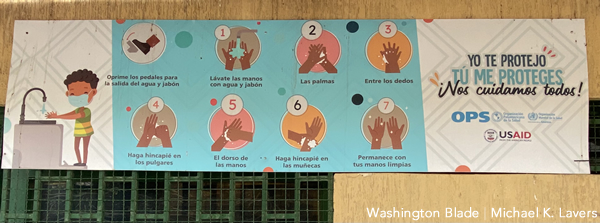
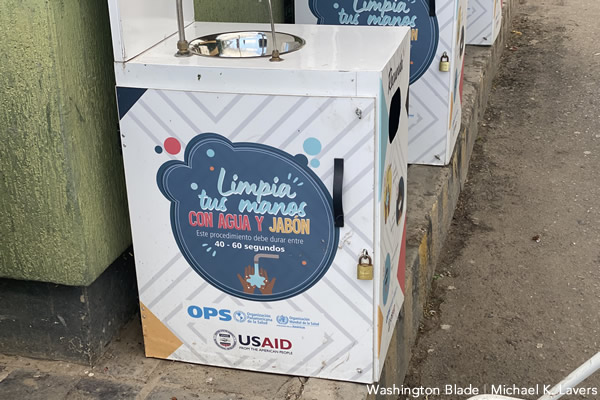
Sacks noted USAID has an “agreement with” Aid for AIDS International, a New York-based group that serves Venezuelans with HIV/AIDS. Aid for AIDS International has used this support to conduct a survey of 300 sex workers in Maicao, Medellín and Cali.
USAID is also working with the Health Ministry to provide health care to Venezuelan migrants with HIV/AIDS, among others, who are now legally recognized in Colombia.
Caribe Afirmativo has opened three “Casas Afirmativos” in Maicao, Barranquilla and Medellín that provide access to health care and other services to Venezuelan migrants who are LGBTQ and/or living with HIV/AIDS. Medellín officials have also invited Caribe Afirmativo staffers to speak with LGBTQ migrants in the city’s public schools.
“Colombia has shown a generosity that you don’t see in many other countries with regard to migrant populations,” Sacks told the Blade. “They really open their borders, their homes, their hearts, to migrants, including the LGBTI community.”
Biden global LGBTQ rights memo is ‘tremendous benefit’
The White House earlier this year released a memorandum that committed the U.S. to promoting LGBTQ rights abroad. State Department spokesperson Ned Price in May told the Blade the protection of LGBTQ migrants and asylum seekers is one of the Biden administration’s priorities on this front.
Sacks said the memo “gives us the political framework with which to operate and obviously sends a message from the highest levels of the U.S. government about LGBTQI-plus rights and equality and inclusion.”
“So for us, it’s a tremendous benefit,” he told the Blade.
USAID Administrator Samantha Power — a vocal champion of LGBTQ rights — has yet to visit Colombia, but Sacks said she has spoken with Vice President Marta Lucía Ramírez.
“We hope to get her down,” said Sacks.
Editor’s note: Michael K. Lavers was on assignment in Colombia from Sept. 11-22.

